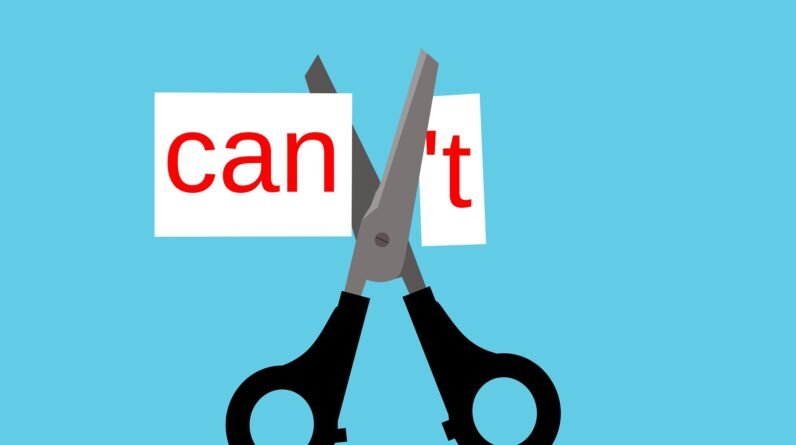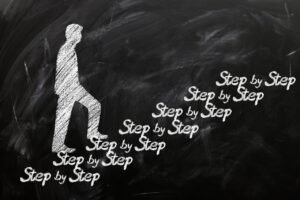

Embarking on the adventure of personal development can feel like trying to conquer Mount Everest, only to find yourself slipping back to base camp every time you progress. It’s frustrating. You’ve put in the training and gathered the right tools and equipment, but it seems like you’re getting nowhere – and fast!
But here’s the thing: when you’re on the path to self-improvement, you never really end up back at base camp, even though it might feel that way sometimes. When you open your mind to the idea that life holds much more for you than the everyday grind, there’s no turning back to your old life. Despite the illusion of stagnation, you’re always making progress, no matter how small the steps may seem.
What’s crucial to understand, though, is that when you attempt to open your mind to what psychologists call “flow,” you’re up against a formidable opponent: your mind. Your average mind is hardwired to lean towards the negative. The subconscious mind, shaped by millions of years of evolution, is inherently backward-looking. It fixates on your “stored knowledge,” the information absorbed during your formative years. This is your mind’s default mode; when you wake up every morning, it resets itself to these default settings.
Even more disheartening is that your subconscious tends to focus on the negative aspects of your stored knowledge. Bad memories and experiences are more readily believed and remembered. This negative bias is the root of the pervasive problem known as worry. It’s also the source of self-doubt, feelings of inadequacy, and low self-esteem – all part of your default settings. And guess what? These are the default settings of most normal minds out there. You’re not alone in this.
The real issue is that we often blame ourselves for these natural tendencies. But there’s no merit in playing the blame game. You’re not responsible for your default state of mind; it’s just the standard adult human condition. You’re not to blame for those nagging feelings of inadequacy, either. They don’t reflect anything you’ve done but rather what was done to you or for you during your formative years. They’re irrelevant to who you are now and, more importantly, who you could become.
Confronted with these mental obstacles, it’s no wonder we sometimes feel stuck at base camp. But remember, these are obstacles you can overcome – and you have, from time to time. The key is not to lose heart on your journey—the secret lies in perseverance. A true warrior is willing to keep going, brushing off life’s trials and tribulations. They pick themselves up, dust themselves off, and start over every time they slip or fall.
Now, let’s dive deeper into this journey of personal development and explore how you can overcome these mental roadblocks and thrive in the process.
The Power of Your Mind
Your mind is an incredible tool, but can also be your greatest adversary if left unchecked. The good news is that you can harness its power and reshape it to work in your favour.
Think of your mind as a muscle. Just as you can strengthen your physical muscles through exercise, you can train your mind to focus on the positive, to see opportunities where others see obstacles, and to build resilience in the face of adversity.
Shifting Your Focus
One of the first steps in your personal development journey is to shift your focus from the negative to the positive. Remember, your mind tends to dwell on the negative by default, but you can retrain it to look for the good in any situation.
Start by practising gratitude. Each day, take a few moments to reflect on what you’re thankful for. It could be as simple as a sunny day, a delicious meal, or a kind word from a friend. By acknowledging the positive aspects of your life, you gradually train your mind to see the glass as half full rather than half empty.
Challenge Your Limiting Beliefs
We all have limiting beliefs – deeply ingrained thoughts that tell us we’re not good, smart, or capable enough. These beliefs are often rooted in past experiences and can hold us back from reaching our full potential.
To overcome limiting beliefs, you must first identify them. Pay attention to the negative thoughts that arise when you face a challenge or pursue a goal. Are you telling yourself that you can’t do it or are not worthy? Once you’ve identified these beliefs, challenge them. Ask yourself if they’re based on facts or outdated notions that no longer serve you.
The Growth Mindset
Developing a growth mindset is a powerful tool in your personal development arsenal. A growth mindset is the belief that your abilities and intelligence can be acquired through effort and learning. With a growth mindset, you see failures and setbacks as opportunities for growth and improvement rather than reflections of your inherent abilities.
To cultivate a growth mindset, embrace challenges and view them as chances to learn and grow. Embrace the learning process, and don’t be afraid to make mistakes. Remember, it’s not about being perfect; it’s about making progress and continuously improving.
The Importance of Self-Compassion
While striving for personal development, being kind to yourself is essential. Self-compassion involves treating yourself with the same kindness and understanding you would offer to a friend facing similar challenges.
Instead of being overly critical of yourself when you make a mistake or encounter a setback, practice self-compassion. Recognize that it’s okay to falter; it’s part of the journey. Treat yourself with empathy and understanding, just as you would a dear friend, and use these moments as opportunities to learn and grow.
Setting Clear Goals
Another crucial aspect of personal development is setting clear, achievable goals. Goals give you a sense of direction and purpose, motivating you to take action and make progress.
When setting goals, make sure they are specific, measurable, achievable, relevant, and time-bound (SMART). Break down larger goals into smaller, manageable steps, and create a timeline for achieving them. This approach helps you stay focused and accountable as you work toward your desired outcomes.
Continuous Learning
Personal development is an ongoing process; lifelong learning is vital to this journey. Embrace opportunities to expand your knowledge and skills through formal education, self-study, or hands-on experiences.
Read books, attend workshops, seek out mentors, and engage in activities that challenge you to grow. The more you invest in your personal growth, the more you’ll see your progress compound over time.
Surround Yourself with Positivity
Your environment plays a significant role in your personal development. Surround yourself with people who support and uplift you. Seek out relationships and communities that share your values and goals.
Limit exposure to negative influences, whether they come from individuals or media. Negative input can undermine your efforts and reinforce limiting beliefs. Choose to engage with content and people that inspire and motivate you.
Practice Mindfulness
Mindfulness is a powerful practice that can enhance your personal development journey. It involves being fully present in the moment, without judgment or distraction. Mindfulness can help you manage stress, increase self-awareness, and improve your well-being.
Consider incorporating mindfulness techniques such as meditation, deep breathing, or journaling into your daily routine. These practices can help you stay grounded and focused as you work toward your personal development goals.
Seek Support
Don’t hesitate to seek support on your personal development journey. Whether through therapy, coaching, or joining support groups, having a support system can provide guidance, accountability, and encouragement.
Professional help can be particularly beneficial when addressing deep-seated issues or traumas hindering your progress. Remember, seeking assistance is a sign of strength, not weakness.
Embrace Failure as Growth
In your pursuit of personal development, failure is not the end but a stepping stone to growth. Every setback, mistake, or obstacle offers an opportunity to learn, adapt, and become more resilient.
Instead of viewing failure as a reflection of your worth, see it as a valuable lesson. Analyze what went wrong, adjust your approach, and keep moving forward with newfound wisdom and determination.
Conclusion
Personal development is a remarkable journey of self-discovery, growth, and transformation. It’s natural to encounter challenges and setbacks, but these obstacles are not reasons to give up. Instead, they are opportunities to become stronger, wiser, and more resilient.
Remember, your mind may default to negative thinking, but you can shift focus, challenge limiting beliefs, and cultivate a growth mindset. Approach your journey with self-compassion, set clear goals, and commit to lifelong learning. Surround yourself with positivity, practice mindfulness, seek support when needed, and embrace failure as a path to growth.
Ultimately, personal development is not about reaching a destination; it’s about embracing the journey and becoming the best version of yourself. So, keep moving forward, one step at a time, and never lose sight of the incredible potential within you. Your progress may seem slow at times, but rest assured, you are climbing your own Everest of personal growth, and the view from the top will be worth every effort.